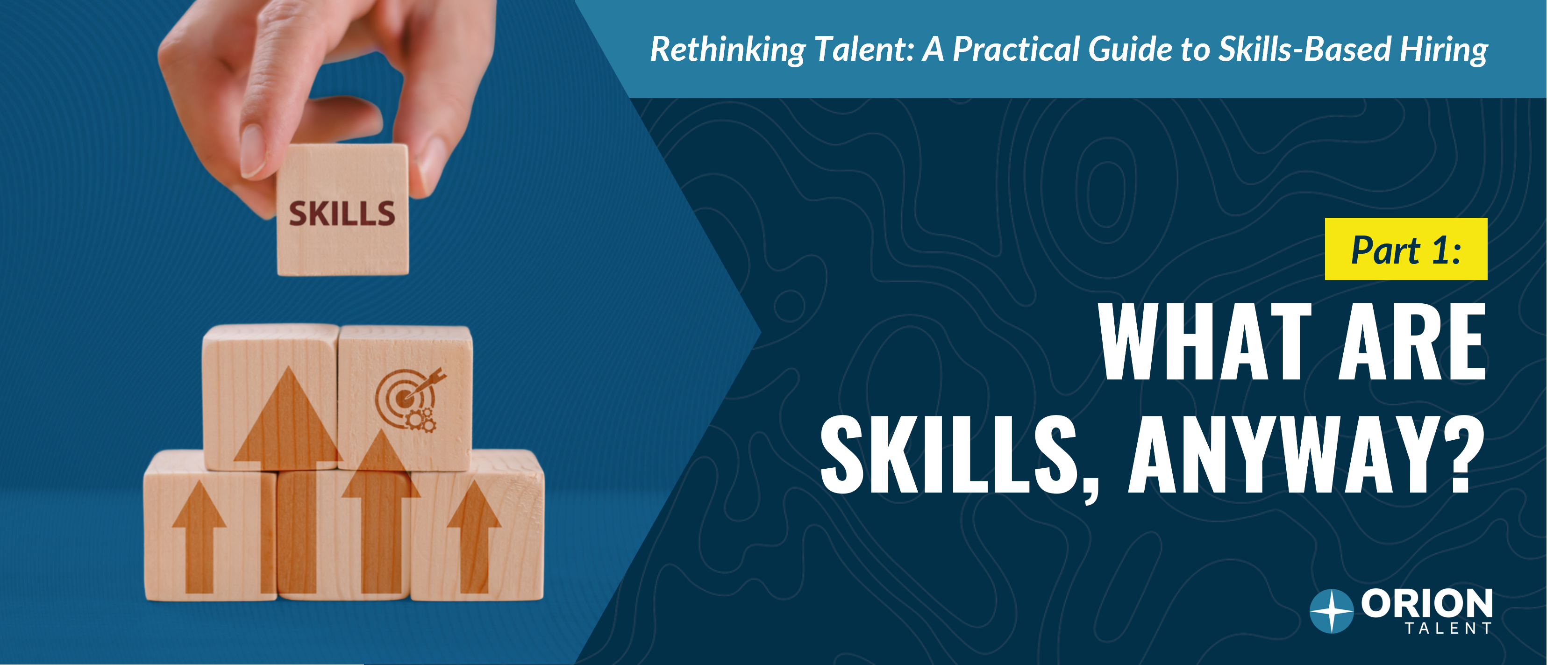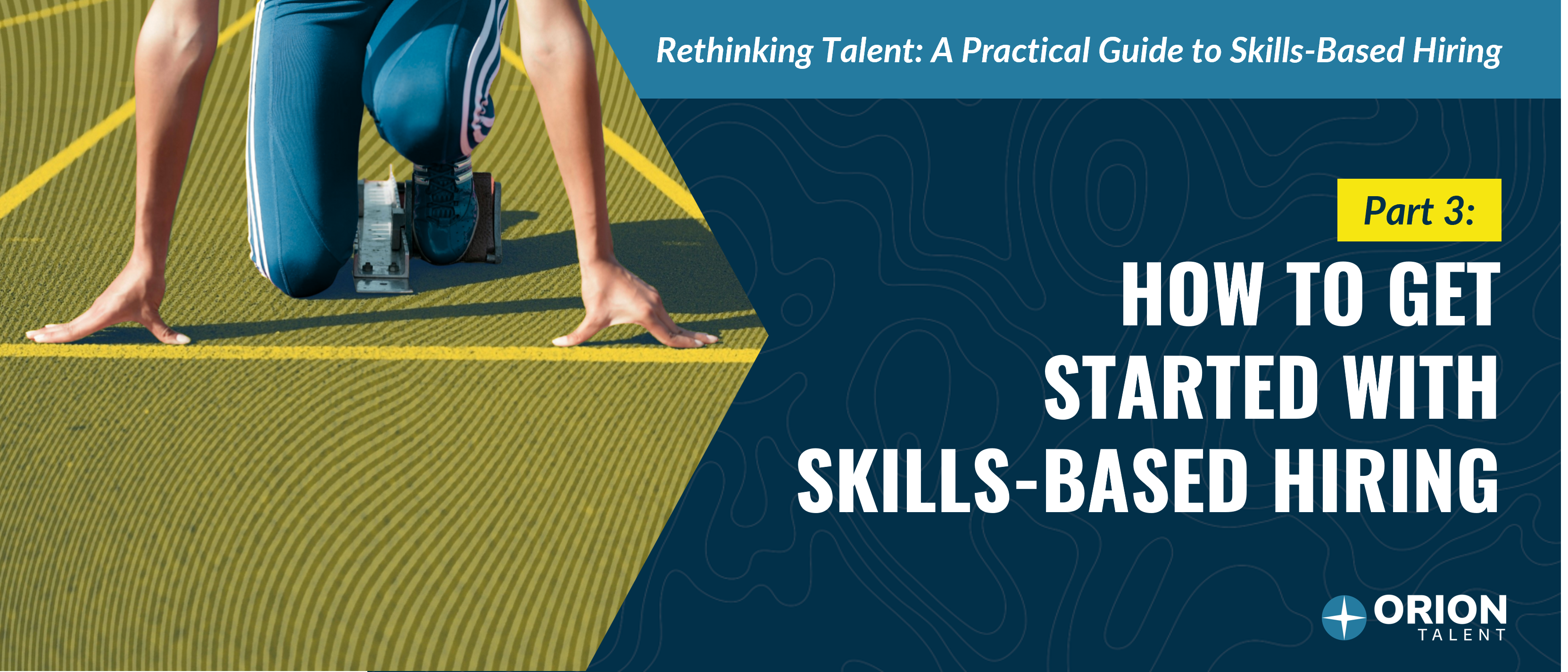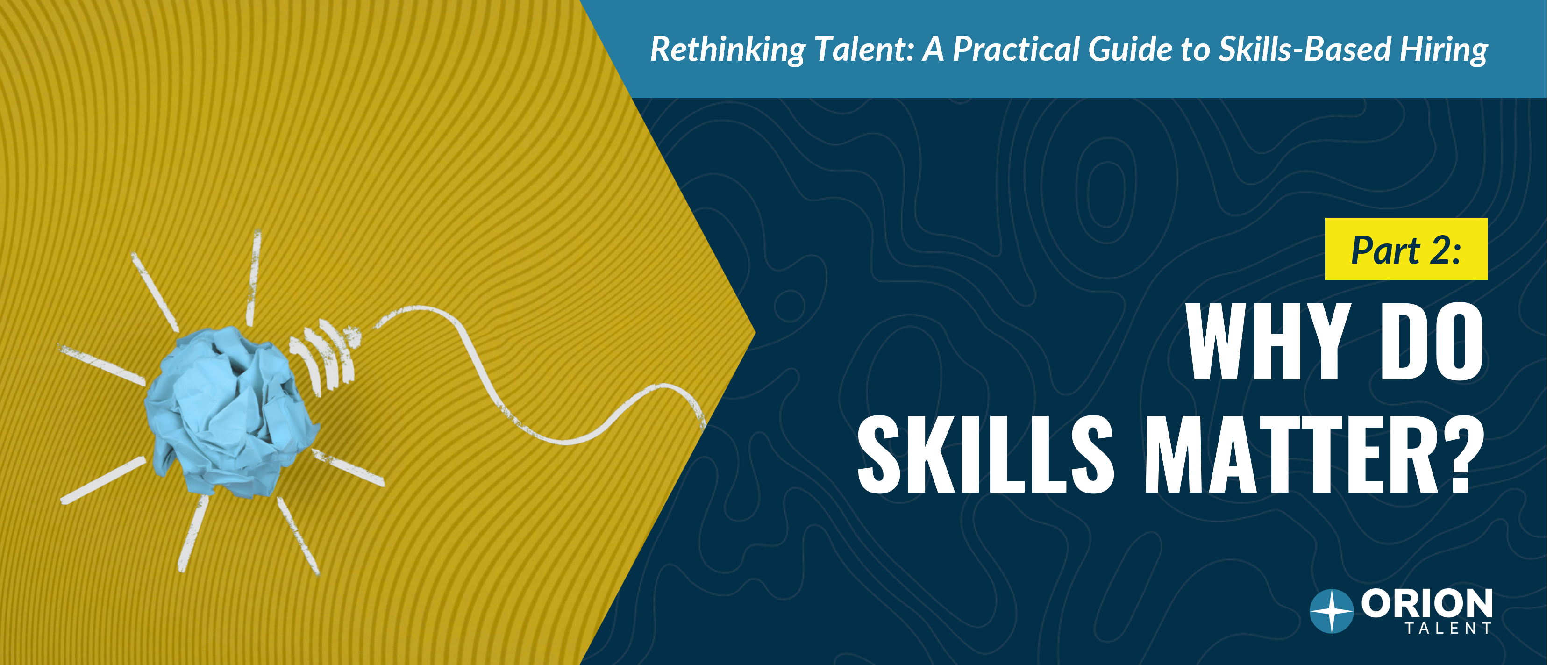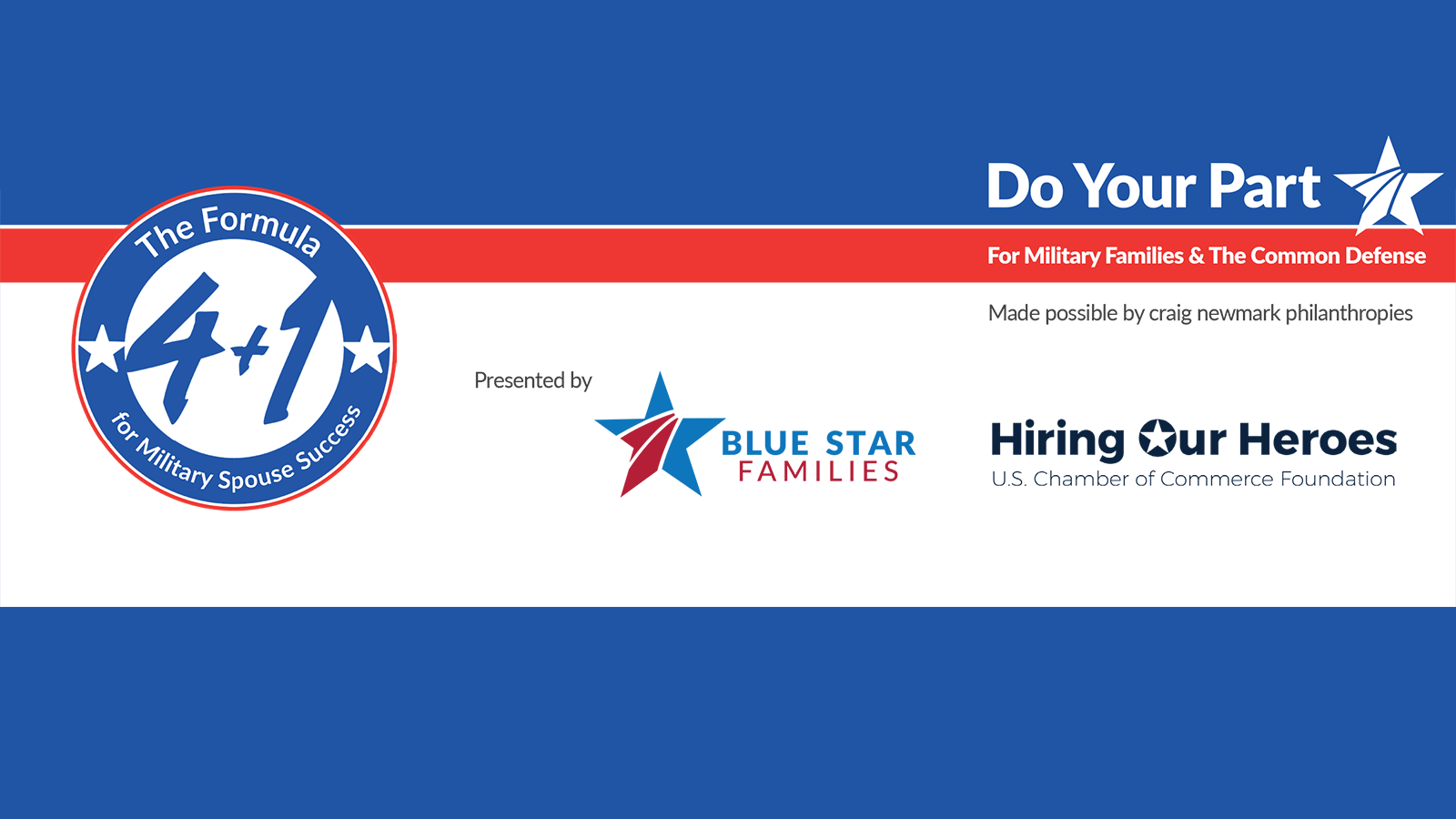
Written by: Stefan Lint, Talent and Workforce Solutions Advisor
PART 1. WHAT ARE SKILLS, ANYWAY?
Everyone in HR is talking about skills. Consultants and technology providers are promising a new era and the holy grail for Talent and Talent Management. But before we dive in and potentially get carried away, what are skills anyway?
Defining Skills
Ask any HR leader today how they define ‘skills’ and you will get a different answer every single time you ask. Some will say that Skills are the new competencies. Others will say it’s a new language to explain and define jobs and work. Others will point to Skills as organizational capabilities. And others yet see skills as a new currency for human capital. It’s clear that we are missing a universal definition of skills.
Merriam Webster defines Skills as follows:
The ability to use one's knowledge effectively and readily in execution or performance.
Bureau of Labor Statistics (BLS) defines skills as “abilities or proficiencies needed to perform tasks in an occupation.”
According to SHRM, skills are part of a broader framework that includes knowledge, skills, and abilities (KSAs). In this definition, skills typically are defined by a proficiency level such as ‘beginner’, ‘proficient’, or ‘expert or master’. This also implies that skills can be learned through acquisition of more knowledge and through practice.
Others divide ‘skills’ into hard or technical skills and soft or human skills.
For this conversation, we’ll define ‘skills’ as a capability to perform a specific task to achieve a certain outcome by using a combination of knowledge, experience, hard and soft skills and aptitude.
Defining skills this way creates a common language for work to be done and results to achieve. It allows companies to focus on what really matters in job performance and deemphasize things that often are proxies for job fit but do not predict job performance, such as education, schools attended, extracurricular activities, companies worked with, etc.
Connecting Skills to Company Goals
Developing a Skills Strategy starts by:
1) Understanding what goals and objectives a company has and then,
2) Identifying the skills that are needed to achieve them.
The more concrete those goals and objectives are, the easier it will be to define the skills that are needed to meet those goals and objectives.
A good place to start is by having in-depth conversations with business leaders responsible for the overall strategy of the business. Those business leaders should be able to outline which goals and initiatives are top of mind and which are longer-term strategic efforts.
Mid-level managers should be able to share the capabilities needed to meet those goals and objectives.
Frontline supervisors should be able to identify which jobs require the skills that are needed.
Example: Launching a New Product
Let’s consider a company that is developing and launching a new product. The organization will need skills to develop the new product, skills to market the new product, and skills to sell the new product. An R&D manager should be able to outline what capabilities are needed to develop the new product and to what degree the company has those capabilities already or not. A manufacturing manager should be able to explain what capabilities are needed to manufacture the new product. A marketing manager should outline what capabilities are needed to develop a market for the new product and whether the company has those capabilities within the existing marketing team or whether it will need new capabilities to market the new product.
The same analysis needs to happen for manufacturing capabilities and sales capabilities. By analyzing the capabilities needed and understanding whether the capabilities exist in the company, you will understand which capabilities to focus on to ensure the successful launch of a new product. The next level analysis is to disseminate capabilities into more specific skills.
Example: Defining Sales Skills
A salesperson will need to bring a variety of skills to be successful. They will need to be able to ‘educate’ their potential buyers as they might not automatically understand the value that this new product brings. The salesperson will need to also be able to quickly understand their client’s business challenges and connect their product to a client’s problem. And lastly, the salesperson will need to be a competent and confident negotiator involving multimillion dollar deals, in order to sell the product at the best possible price. Note that the skills in this scenario might be different from the skills that are needed for selling consumer products to individual consumers.
Choose Your Starting Point
In order for skills to work for you and your organization, it’s recommended to start small. Skills-Based Hiring is an organizational muscle that needs developing by doing.
1) Pick one talent function.
2) Choose one critical job.
3) Create a list of 3-5 critical skills that are needed for strong performance.
4) Create a list of open-ended interview questions to assess these critical skills.
Start with a Shared Definition – Then Put it to Work
Defining Skills for your organization is the first step in building a strategy that can more the needle for business performance, employee retention, and internal mobility. By aligning your talent practices to real skills, you unlock the potential to hire faster, develop talent more effectively, and create a future-ready workforce.
In our next post, we’ll explore why skills matter. We’ll look at how a skills-first approach can help your business adapt to change, close capability gaps, and make better talent decisions at every level.
Would you like to explore how Skills-Based Hiring can work within your organization? Contact us to start the conversation.
Archives
- February 2026
- January 2026
- December 2025
- November 2025
- October 2025
- September 2025
- August 2025
- July 2025
- June 2025
- May 2025
- April 2025
- March 2025
- February 2025
- October 2024
- May 2024
- March 2024
- February 2024
- January 2024
- December 2023
- November 2023
- October 2023
- September 2023
- August 2023
- July 2023
- June 2023
- May 2023
- April 2023
- March 2023
- February 2023
- January 2023
- December 2022
- November 2022
- October 2022
- September 2022
- August 2022
- July 2022
- June 2022
- May 2022
- April 2022
- March 2022
- February 2022
- January 2022
- December 2021
- November 2021
- October 2021
- September 2021
- August 2021
- July 2021
- June 2021
- May 2021
- April 2021
- March 2021
- February 2021
- January 2021
- December 2020
- November 2020
- October 2020
- September 2020
- August 2020
- July 2020
- June 2020
- May 2020
- April 2020
- March 2020
- February 2020
- January 2020
- December 2019
- November 2019
- October 2019
- September 2019
- August 2019
- July 2019
- June 2019
- May 2019
- April 2019
- March 2019
- February 2019
- January 2019
- December 2018
- November 2018
- October 2018
- September 2018
- August 2018
- July 2018
- June 2018
- May 2018
- April 2018
- March 2018
- February 2018
- January 2018
- December 2017
- November 2017
- October 2017
- September 2017
- August 2017
- July 2017
- June 2017
- May 2017
- March 2017
- February 2017
- January 2017
 RSS Feed
RSS Feed



















